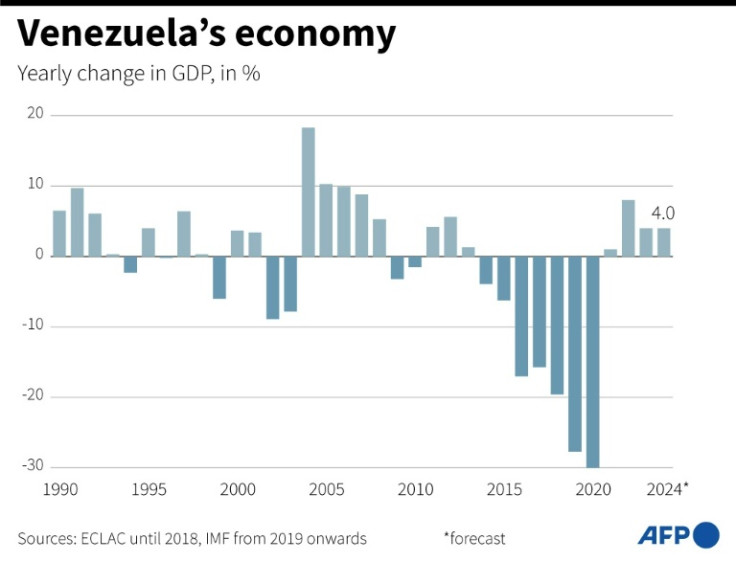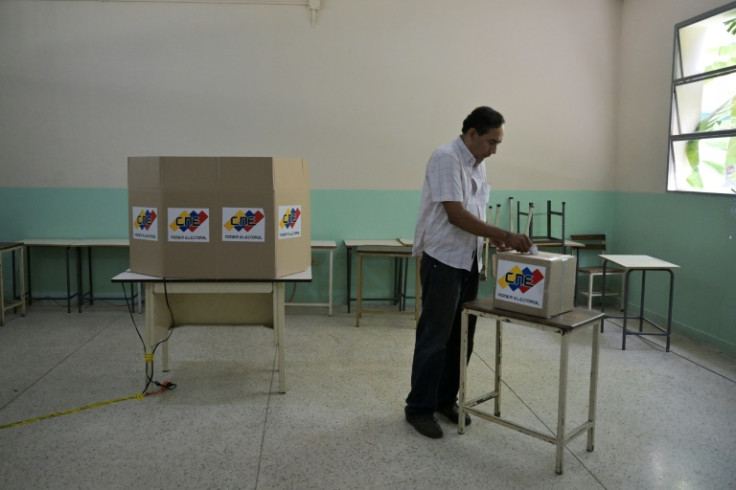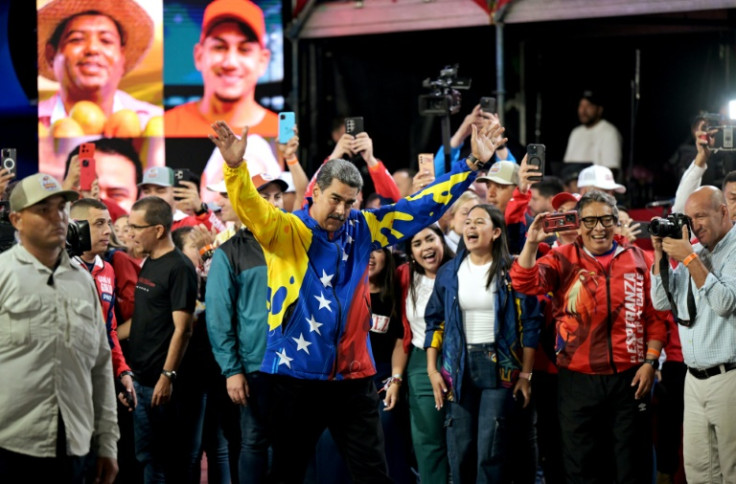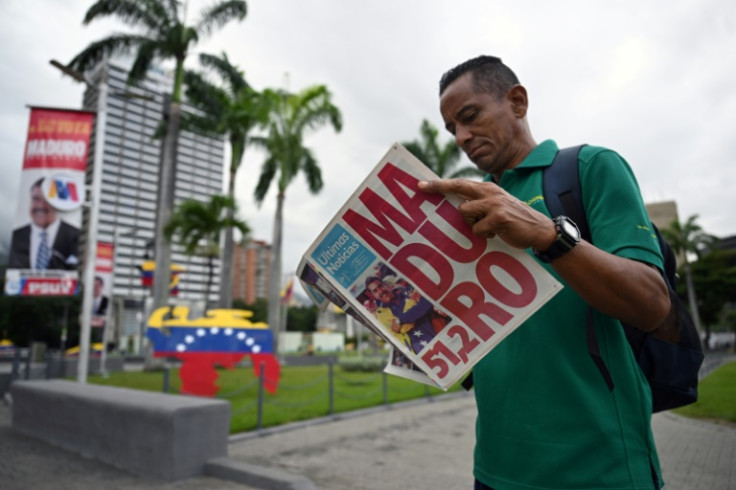
Venezuela's opposition declared it was the rightful victor of a presidential election as global concern poured in Monday over alleged irregularities in the re-election of strongman Nicolas Maduro.
After a turbulent decade in power, Maduro, 61, was declared the winner of Sunday's presidential election which capped a campaign tainted by accusations of political intimidation.
Pollsters had predicted a resounding victory for the opposition, even after its popular leader Maria Corina Machado was blocked from running and appointed a proxy.
The CNE electoral council, largely loyal to Maduro, declared he had won re-election with 51.2 percent of votes, while opposition candidate Edmundo Gonzalez Urrutia received 44.2 percent.
The result sparked concern over irregularities from the United States, European Union, and several countries in Latin America.
Maduro, 61, addressed celebrating supporters at the presidential palace minutes after the announcement, vowing "peace, stability and justice."
But the opposition coalition insisted it had garnered 70 percent of the vote, rejecting the CNE figures.
"We want to say to all of Venezuela and the world that Venezuela has a new president-elect and it is (candidate) Edmundo Gonzalez Urrutia," opposition leader Maria Corina Machado told journalists, calling the official result "another fraud."
Gonzalez Urrutia, a 74-year-old former diplomat, said "our fight continues, and we will not rest until the will of the Venezuelan people is reflected."
"The results are undeniable. The country chose a peaceful change," he wrote on X ahead of the official result.
Brazil's foreign ministry called for an "impartial verification" of the results while Colombia urged an "independent audit" of ballots.
Costa Rican President Rodrigo Chaves denounced the CNE result as "fraudulent," while Chile's president called it "hard to believe."
Peru announced it recalled its ambassador over the results.
US Secretary of State Antony Blinken expressed "serious concerns" that the result did not reflect the will of Venezuelans. European Union foreign policy chief Josep Borrell called for "full transparency in the electoral process."
Britain also voiced concerns about allegations of vote count "irregularities."
Venezuela's allies, including China, Russia, Cuba, Nicaragua, Honduras and Bolivia, however, congratulated Maduro.
Cuban President Miguel Diaz-Canel said he spoke with "brother" Maduro to convey congratulations "for the historic electoral triumph achieved."
Independent polls had predicted Sunday's vote would end 25 years of "Chavismo," the populist movement founded by Maduro's socialist predecessor and mentor, the late Hugo Chavez.
Since 2013, Maduro has been helming the once-wealthy petro-state, where GDP dropped by 80 percent in a decade, pushing more than seven million of its 30 million citizens to emigrate.
He is accused of locking up critics and harassing the opposition in a climate of rising authoritarianism.
In the run-up to the election, he warned of a "bloodbath" if he lost.
Gonzalez Urrutia had replaced popular Machado on the ticket after authorities loyal to Maduro excluded her from the race.
Machado had urged voters Sunday to keep "vigil" at their polling stations in the "decisive hours" of counting amid widespread fears of fraud.
Ballots were cast on machines that print paper receipts placed into a container. The electronic votes went directly to a centralized CNE database.
The opposition had deployed about 90,000 volunteer election monitors to polling stations nationwide.
Elvis Amoroso, the CNE president, denounced an "attack on the data transmission system that delayed" the count.
Voter turnout was 59 percent, Amoroso said, among some 17 million eligible voters.
Sunday's election was the product of a mediated deal reached last year between the government and opposition.
The agreement to hold the vote led the United States to temporarily ease sanctions imposed after Maduro's 2018 re-election, which was rejected as a sham by dozens of Western and Latin American countries.
Sanctions were snapped back after Maduro reneged on agreed conditions.
Washington seeks a return to stability in Venezuela, which boasts the world's largest oil reserves but has severely diminished production capacity.
Economic misery in the South American nation has been a major source of migration pressure on the US southern border.
Most Venezuelans live on just a few dollars a month, and endure biting shortages of electricity and fuel.
The government blames sanctions, but observers also point the finger at corruption and government inefficiency.












